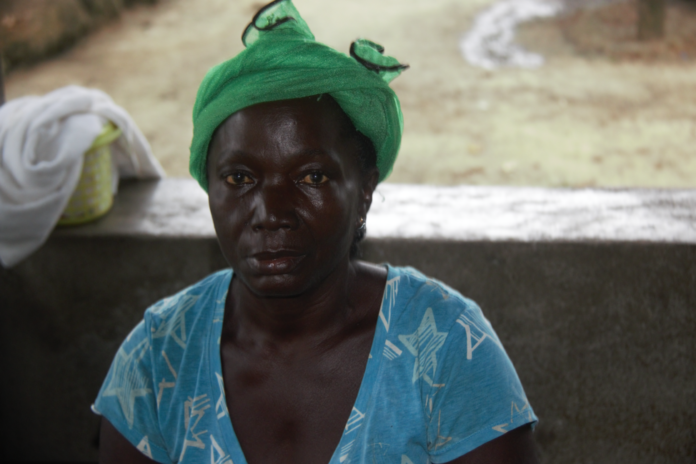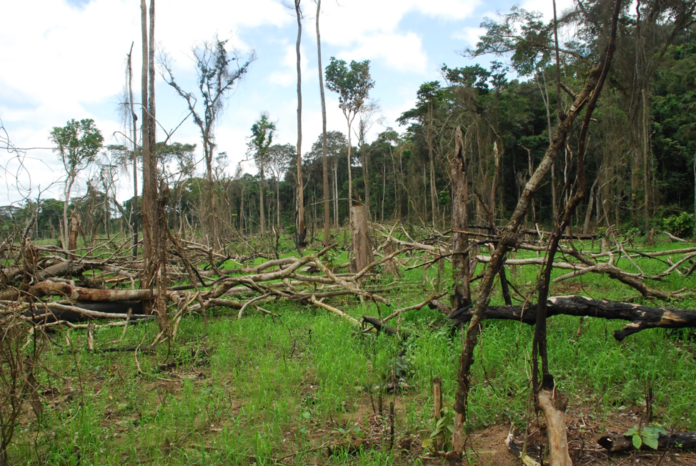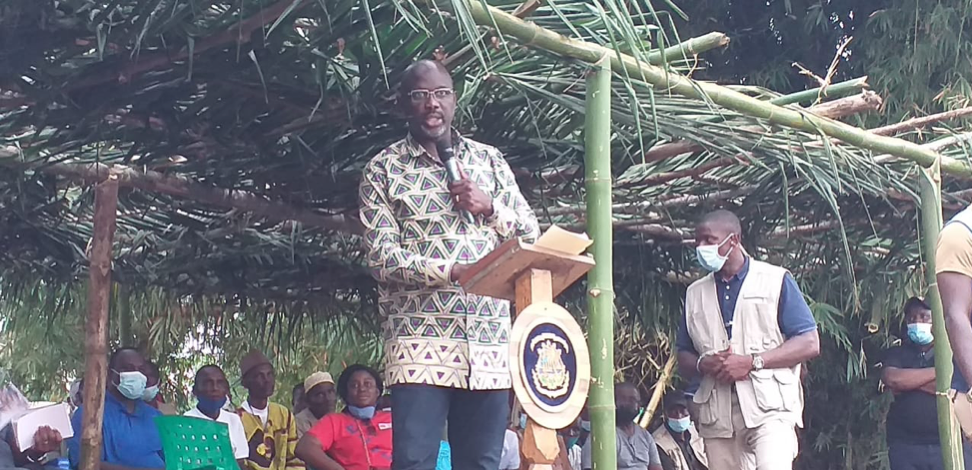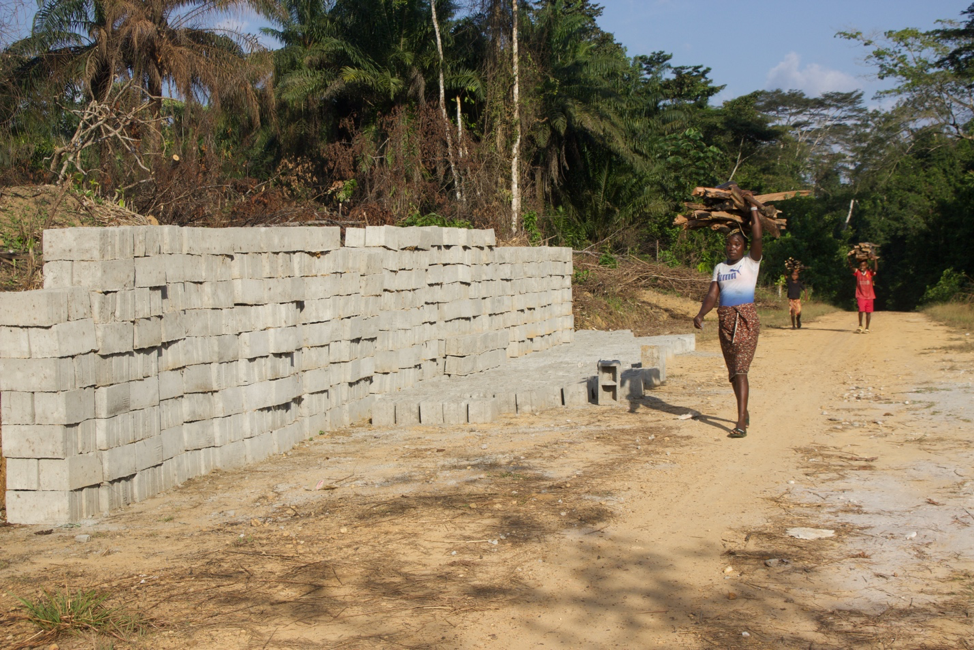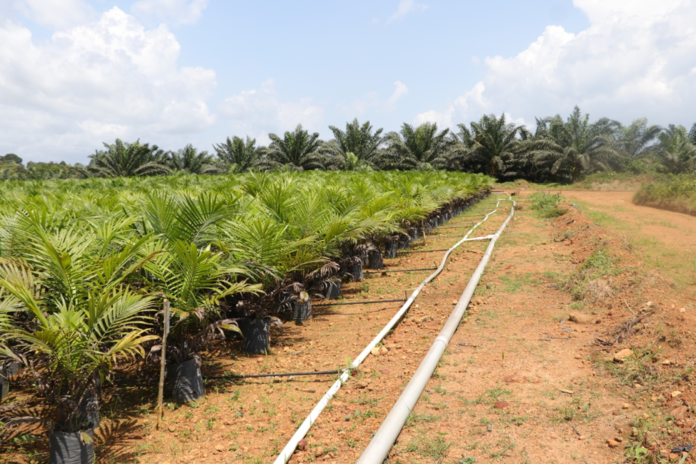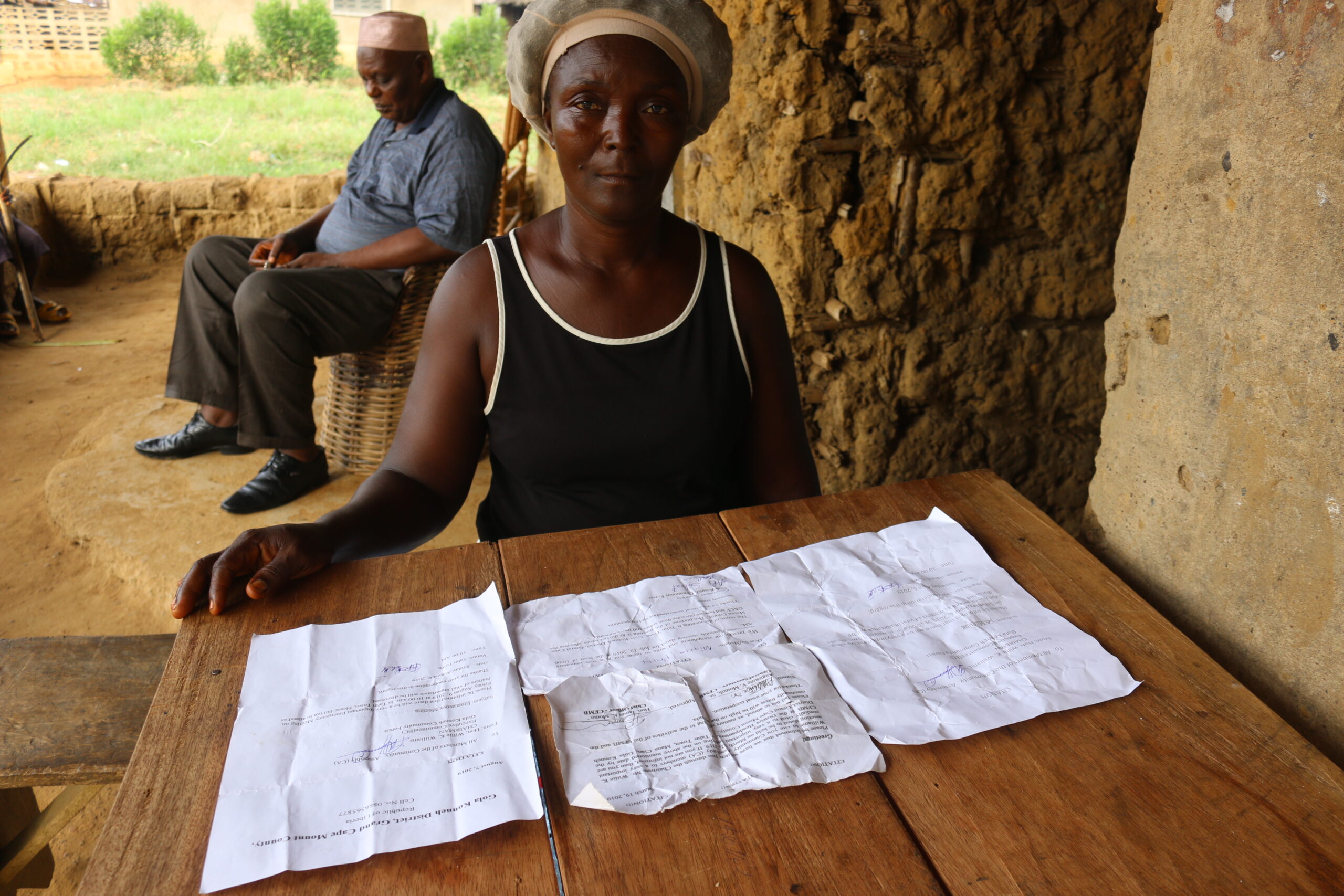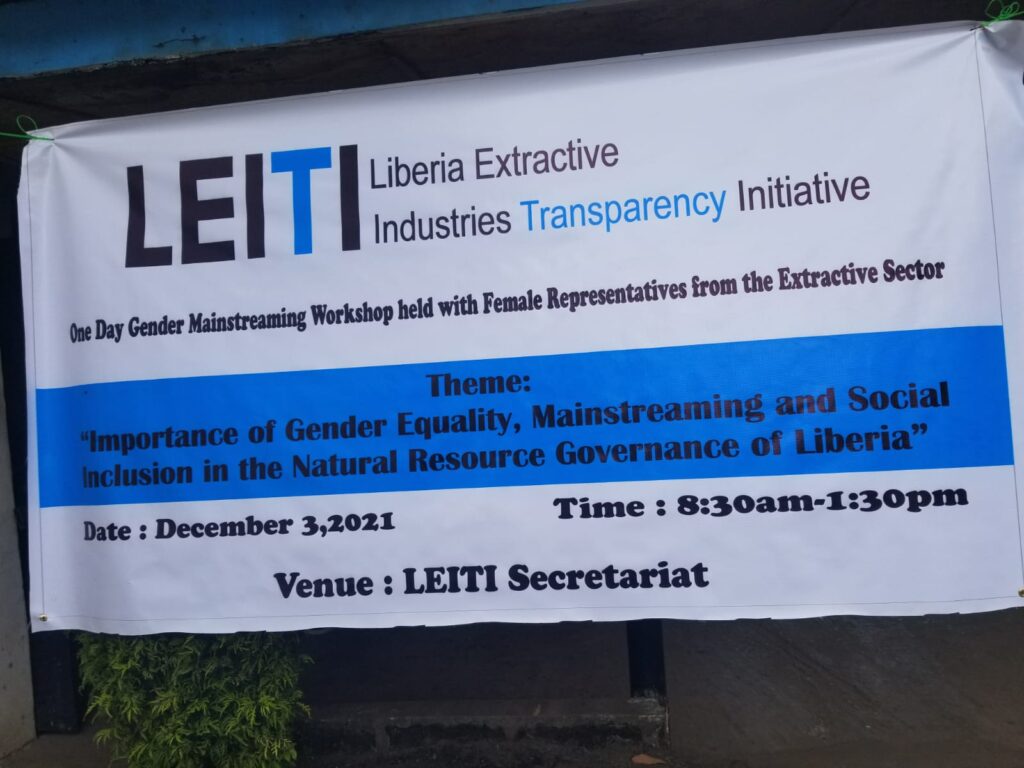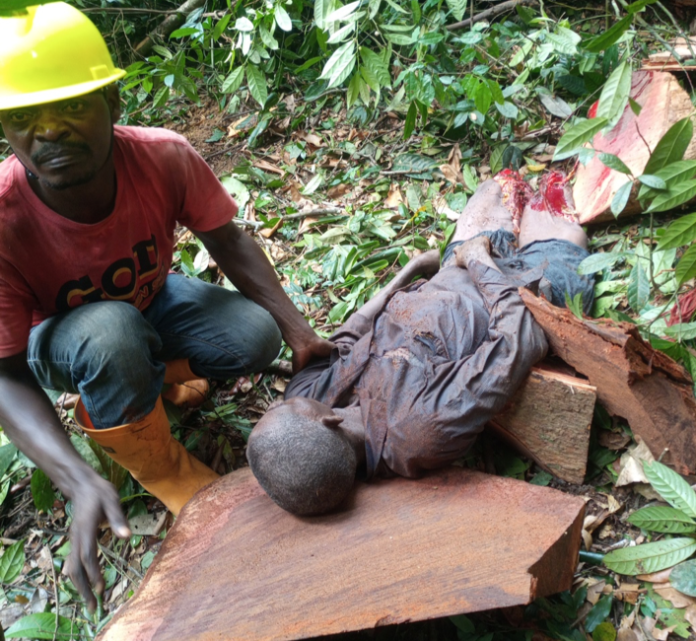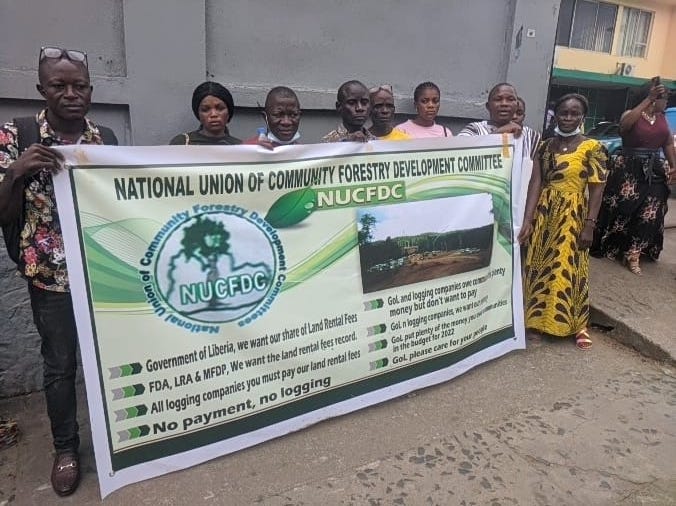Banner Imgae: Tenneh Sanii sitting under her kitchen in Kiawelahun village. The DayLight/Emmanuel Sherman
By Emmanuel Sherman
FORNOR, Grand Cape Mount County – Tenneh Sanii, 46, is the only female member of the community forest development committee (CFDC), which represents villagers’ interest in a logging contract with Sun Yeun Logging Corporation. She often walks more than two hours from her Kiawelahun, a village to Fornor, where she and nine other members of the CFDC meet. They signed the contract in 2010 with the Chinese company to log on 5,000 hectares of forestland in the Garwula District on the border with Sierra Leone, known across the forestry industry as timber sales contract area 15 (TSC A15).
“I can go for a whole day or one week I leave [the children] with their big sister who can cook,” says Sanii a mother of six as she sits under the thatched kitchen in her home.
It is not just Fornor that women’s participation is low in forest governance. That is the case across all 23 communities affected by TSCs and forest management Contracts (FMCs), which cover forestlands between 50,000 and 400,000 hectares. Before the Liberian Civil War in 2003, communities—including women—did not participate in forestry though are the custodians of the forest. But the National Forestry Reform Law of 2006 changed that, giving women at least a slot in every community leadership. However, 15 years after the law, they still struggle to participate in forest governance.
Of the 230 members of community forests’ leaderships nationwide, just 52 or 23 percent are women, according to the National Union for Community Forest Development Committee (NUCFDC). Only one community leadership is headed by a woman, Ruth Milton. Just two other women Betty Tarwoe and Tupee Zolue are co-chairpersons of their respective leaderships. Four communities do not have a woman in their leadership.
Florence Dorley, a consultant at the Food and Agriculture Organization (FAO) on forestry and natural resource management, says there are many reasons why women’s participation is low in a sector that contributes the third-highest revenue to Liberia in the 2018/2019 fiscal year.
“A lot more awareness needs to be done and case study or evidence produced and presented to the communities on the positives in having women in forest governance and the natural resource sector at large,” says Dorley. “Sometimes the exclusion of women from natural resource administration and governance is unintentional and mostly influenced by culture, traditions and lack of knowledge and awareness on the implication and benefits to the women themselves and the communities.”
Joseph Madzvamuse, program manager at ActionAid Liberia, agrees with Dorley. He blames the dominance of males in African societies as a key reason for low women’s involvement.
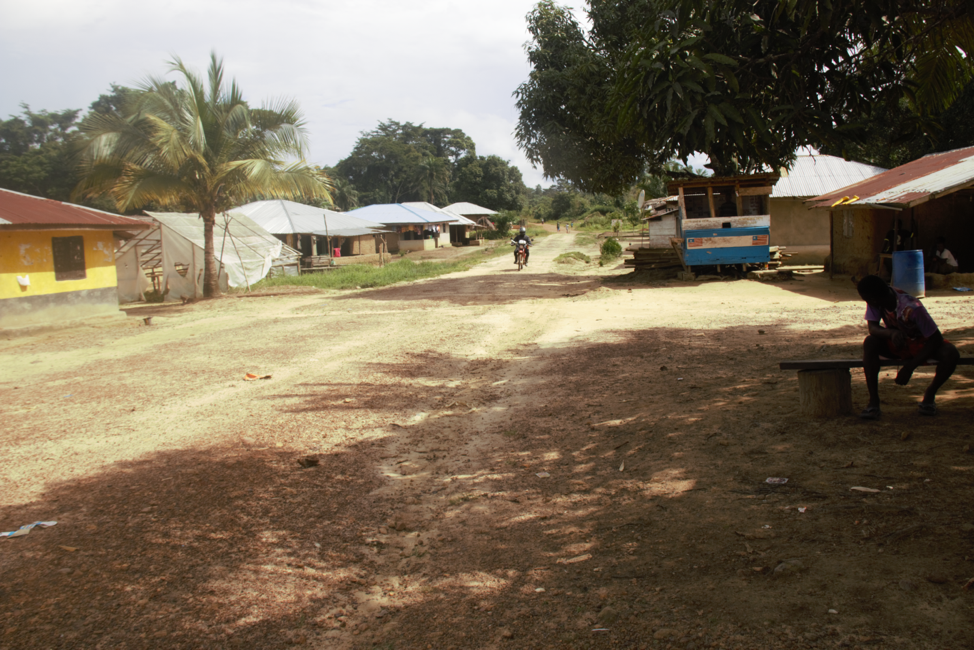
“Most of our societies and communities are patriarchal in Africa, largely dominated by men which is an issue. This does not give women the platform to be held,” says Madzvamuse.
“Women literacy network is another challenge.”
Loretta Pope-Kai, the executive director of the Foundation for Community Initiatives (FCI), which advocates for gender equality in the extractive sector, does not disagree with Madzvamuse or Dorley. But she blames malpractices that have marred the forestry sector despite its reform.
In the last one and a half decades, the sector has witnessed huge violations like the Private Use Permit Scandal of 2012. Last month, a report found nearly US$2.5 million worth of logs were harvested outside a contract area in Grand Bassa, with the Forestry Development Authority (FDA) not doing anything despite knowing about it two years ago.
“This is just going to scare away women from participating in forest governance matters and even occupying posts on governance bodies,” Kai told The DayLight at the time. “We are letting women down with all these violations and our failure to act in accordance with the law.”
Kai’s comments strike a chord with the situation in Fornor. Sun Yuen did not live up to the social agreement it signed with Sanii and other villagers for all the 11 years it held the forest. It failed to build roads, construct handpumps, and erect schools and clinics as it promised. The company also failed to live up to its contract with Lah, Fornor’s neighbor commonly called TSC-A16. Under the law, the FDA should have canceled the company’s contracts with those communities after its first year of inaction and a 90-day grace period. Furthermore, Sun Yeun should not have even had a TSC. The law restricts TSC companies to at least 51 percent Liberian shareholders. However, the company’s majority shareholder is Wei Zhang, a Chinese, according to its article of incorporation.
Kai and other campaigners are calling for robust actions to encourage women to participate in community forests’ elections, which are expected to be held next year. Under the law, elections—including for Sanii’s community forest leadership—should be held every five years for review and renegotiation of contracts.
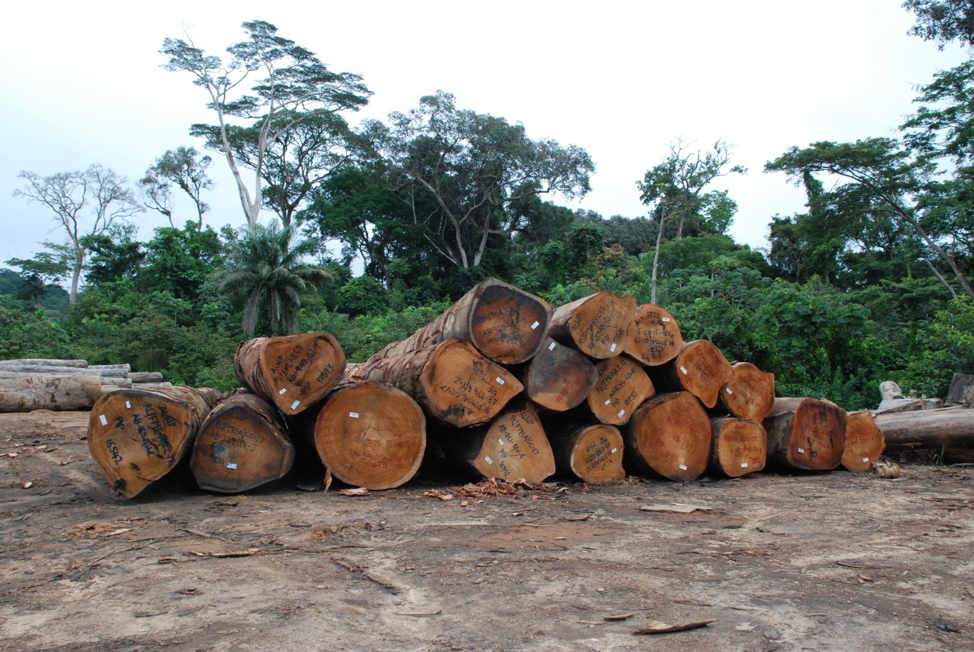
“Over the years, and the coming elections, we have done lots of things because analyzing the situation, we’ve gone back to communities, prioritizing women’s education, especially women training in forest governance,” says Andrew Zelemen, head of the secretariat of the National Union of Community Forest Development Committee (NUCFDC). Zelemen says the group worked with local and international non-governmental organizations and established a network of women across communities affected by TSCs and FMCs.
“We are doing that as a means to have them represent their communities,” Zelemen, whose own community leadership does not have a single woman, says. “We are very sure that this coming election they will participate.”
“We have designed interventions to ensure women have a space to discuss issues without any interference from their male counterparts to help them strategize how they can participate, says Madzvamuse. “At the community level, we have girls’ clubs, women’s clubs, mother’s clubs and women’s forums.”
Facing bad roads, long-distance walks, and a failed logging contract, Sanii still wants to continue working on her community forest’s leadership. Marbu Sheriff, her chairman wants to bring other women onboard.
Sheriff says, “I am talking to two other women from the nearby villages to be part of the CFDC.”

